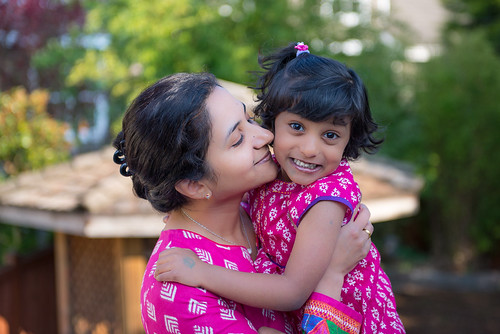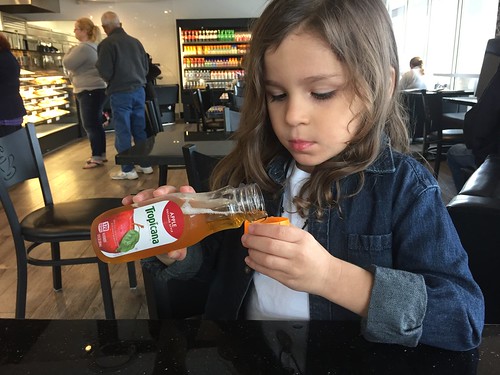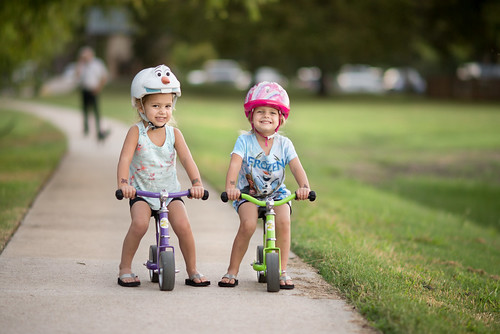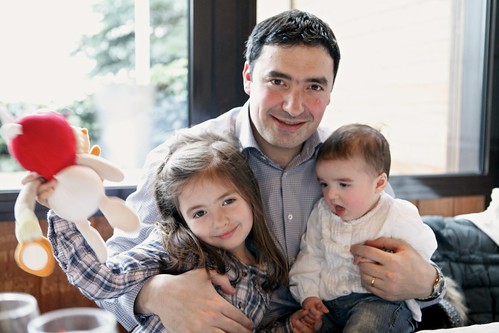We’ve all felt the crushing blow of defeat. These painful situations can derail anyone, especially kids. As much as we want to protect our little ones from heartache, a better way to approach these circumstances is with a life lesson. Take advantage of these tips to help your child understand and grow through failure.
Allow Them to Fail

Image via Flickr by Nic’s events
The first step in solving a problem is acknowledging it happened. Your child is going to make mistakes, and failure is just a part of life. Once you’ve accepted that you can’t save them from themselves, let go of your natural parental need to protect them from everything. Children of all ages need to experience these setbacks, and you’re not doing them any favors by helping them avoid the agony of disappointment. Instead, you can:
- Empower your child: If your child comes home crying with a poor grade, don’t email their teacher for an explanation. Empower your child with the confidence to address their performance directly with the teacher or help them understand that they won’t always get the grade they think they deserve.
- Let nature take its course: If your child forgets to bring their instrument to school for band class, resist the urge to drop everything to bring it to them. Let them suffer the natural consequences and embarrassment of their absentmindedness so that they’ll remember next time.
- Use failure as a lesson: Kids benefit from failure, and good parenting doesn’t mean you should avert their struggles. In many cases, working through challenging experiences is one of the best ways for children to learn coping and problem-solving skills.
- Address your own fears: Often, our need to shield our kids comes from our own anxiety. Ask yourself the following questions before you intervene:
- Would I parent differently in this situation if my fear wasn’t a factor?
- Are the consequences of my child’s mistake permanent or dangerous?
- Will they learn an important lesson and become stronger if I allow them to continue?
Focus on Growth Mindset

Image via Flickr by Still Vision
Now that you understand how vital it is to allow your children to experience failure, you can help them grow in challenging circumstances by incorporating these mindsets:
- Failure is normal: Focus on reframing mistakes as a normal part of life. Explain that everyone blunders sometimes, and reinforce the idea that it’s all part of the learning process. If you’re not slipping up on occasion, you’re not growing.
- Share your setbacks: Share your failures with your children in an honest, age-appropriate discussion. Tell them how you’ve fallen down and gotten back up in the past. This practice is motivating for older kids and helps build a deeper connection between you both.
- Empower them: A growth mindset empowers kids and changes their reaction to future failures. A 2017 study published by Science Direct showed that children with a growth mindset were more likely to turn mistakes into positive learning experiences.
Celebrate Failure

Image via Flickr by getgln
The disappointment that comes with failure can be an excellent teacher. Why not embrace the occasion whenever it happens and treat it as a new opportunity? Here are a few ways you and your children can celebrate mistakes:
- Bragging rights: Encourage your kids to brag about what they learned by examining their mistakes.
- Add a mantra: When someone spills the juice, for example, you can jokingly say, “It’s a good thing our family celebrates mistakes!” While it sounds silly, it works. Breaking the tension gives everyone a chance to realize that minor slip-ups come with everyday life.
- Add a dash of praise: Try giving your child a fist bump or a high-five whenever they mess up. This show of love and acceptance will build their self-confidence, and they’ll be better able to accept their mistakes.
- Discuss the acronym FAIL: To help promote learning, explain to the kiddos that errors are merely their First Attempt in Learning. This thought process takes the pressure off of failure. So what if things didn’t work out as expected? All you need to do is try again.
Encourage Them to Take Risks

Image via Flickr by donnierayjones
If your child never steps out of their comfort zone or takes risks, they’ll miss out on new opportunities. We learn and grow by challenging ourselves. Incorporate some of the following ideas into your family’s daily routine:
- Inspire them to never give up: Sometimes, your child may make a wholehearted attempt at solving a problem but fall flat of the results they’re aiming for. Take this opportunity to applaud their efforts. Tell them, “I’m proud of you for trying. Did you know it took Thomas Edison 1,000 attempts to make the light bulb?” Encourage them to keep trying until they can achieve their goals.
- Underemphasize achievement: Whether your kids compete on the soccer field or in the classroom, a laser-sharp focus on winning may backfire in the end. When your child’s self-worth comes through achievement, they’re going to be crushed when they don’t succeed. Encourage them to take risks and put in effort for the sake of growth rather than success.
- Remind children about their past accomplishments: If your children are nervous about taking new risks and opportunities, redirect their attention to their past achievements to show them how far they’ve come. For example, you could remind them that, “When you were in preschool, you had to use training wheels on your bike, but now look at you go!”
Be a Role Model

Image via Flickr by abresciaphotos
Being a model of self-compassion will help teach your children not to be so hard on themselves when they make mistakes. Practice these good habits:
- Use positive self-talk: Be a shining example to your kids and model self-acceptance and good self-esteem whenever you make an error.
- Don’t put yourself down: Calling yourself names like stupid or clumsy may send your children a negative message. Try saying, “Oops, that was wrong. Let me try that again.”
- Apologize to your child and others: When you make a mistake while parenting your kiddos, apologize. This action helps to normalize both mistakes and apologies and show them how to mend wounded feelings.
There you have it! These handy tips will help you teach your child how to accept failure and understand that experiencing life’s hardships is a normal part of growing up.
